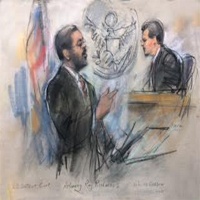Harrison Township Criminal Lawyer, Michigan
Sponsored Law Firm
-
 x
x

Click For More Info:
-
Richards & Associates, PLLC
200 East Big Beaver Road Troy, MI 48083» view mapCriminal Defense Accomplished Criminal Defense Attorney
If you face criminal charges, you deserve an experienced defense lawyer who has a reputation for winning the tough cases.
800-844-5250
Shawn J. Coppins
✓ VERIFIEDDivorce & Family Law, Criminal, Accident & Injury, Bankruptcy, Traffic
Mr. Coppins was born and raised in the Metro-Detroit area and is a Litigation Specialist
Shawn Coppins is an aggressive plaintiff's attorney and is one of the firm's founding partners.Mr. Coppins was born and raised in the Metro-Detroit ar... (more)
Dennis J Rickert
Alimony & Spousal Support, Animal Bite, Criminal, Child Support
Status: In Good Standing
FREE CONSULTATION
CONTACTFREE CONSULTATION
CONTACTPhilip Matthew Jacques
Other, Divorce & Family Law, DUI-DWI, Criminal
Status: In Good Standing Licensed: 15 Years
Paul B. Addis
Divorce & Family Law, Criminal, Accident & Injury, Personal Injury
Status: In Good Standing
Aaron J. Hall
Agriculture, Family Law, Criminal, Administrative Law
Status: In Good Standing Licensed: 9 Years
Scott E. Bright
Traffic, Estate Planning, Criminal, Elder Law
Status: In Good Standing Licensed: 44 Years
 Ray Richards Troy, MI
Ray Richards Troy, MI AboutRichards & Associates, PLLC
AboutRichards & Associates, PLLC Practice AreasSpecializations
Practice AreasSpecializations

